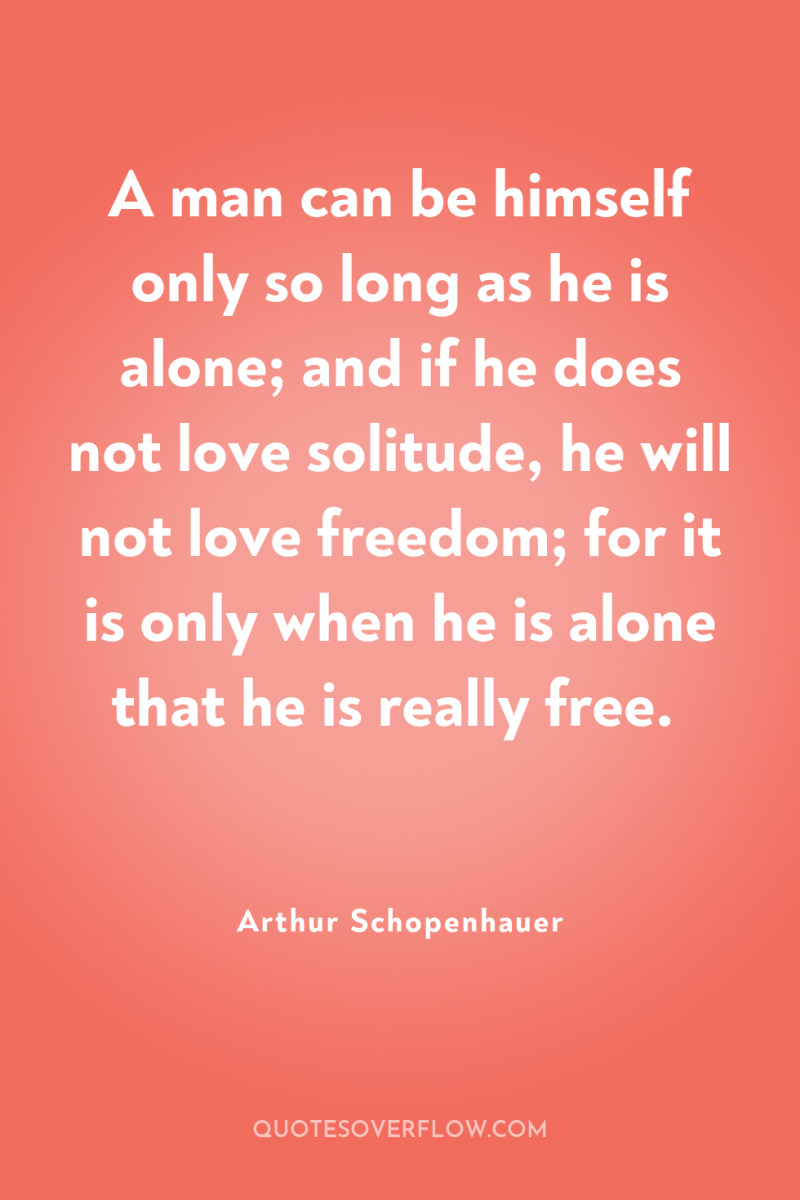1
Writers may be classified as meteors, planets, and fixed stars. They belong not to one system, one nation only, but to the universe. And just because they are so very far away, it is usually many years before their light is visible to the inhabitants of this earth.Arthur Schopenhauer

2
Let us see rather that like Janus–or better, like Yama, the Brahmin god of death–religion has two faces, one very friendly, one very gloomy...Arthur Schopenhauer
3
As the biggest library if it is in disorder is not as useful as a small but well-arranged one, so you may accumulate a vast amount of knowledge but it will be of far less value to you than a much smaller amount if you have not thought it over for yourself; because only through ordering what you know by comparing every truth with every other truth can you take complete possession of your knowledge and get it into your power.Arthur Schopenhauer
4
When we read, another person thinks for us: we merely repeat his mental process. In learning to write, the pupil goes over with his pen what the teacher has outlined in pencil: so in reading; the greater part of the work of thought is already done for us. This is why it relieves us to take up a book after being occupied with our own thoughts. And in reading, the mind is, in fact, only the playground of another’s thoughts. So it comes about that if anyone spends almost the whole day in reading, and by way of relaxation devotes the intervals to some thoughtless pastime, he gradually loses the capacity for thinking; just as the man who always rides, at last forgets how to walk. This is the case with many learned persons: they have read themselves stupid.Arthur Schopenhauer
5
Reading is merely a surrogate for thinking for yourself; it means letting someone else direct your thoughts. Many books, moreover, serve merely to show how many ways there are of being wrong, and how far astray you yourself would go if you followed their guidance. You should read only when your own thoughts dry up, which will of course happen frequently enough even to the best heads; but to banish your own thoughts so as to take up a book is a sin against the holy ghost; it is like deserting untrammeled nature to look at a herbarium or engravings of landscapes.Arthur Schopenhauer

6
A man can be himself only so long as he is alone; and if he does not love solitude, he will not love freedom; for it is only when he is alone that he is really free.Arthur Schopenhauer
7
To free a man from error is not to deprive him of anything but to give him something: for the knowledge that a thing is false is a piece of truth. No error is harmless: sooner or later it will bring misfortune to him who harbours it. Therefore deceive no one, but rather confess ignorance of what you do not know, and leave each man to devise his own articles of faith for himself.Arthur Schopenhauer
8
One can never read too little of bad, or too much of good books: bad books are intellectual poison; they destroy the mind. In order to read what is good one must make it a condition never to read what is bad; for life is short, and both time and strength limited.Arthur Schopenhauer
9
There are 80, 000 prostitutes in London alone and what are they, if not bloody sacrifices on the alter of monogamyArthur Schopenhauer
10
Every miserable fool who has nothing at all of which he can be proud, adopts as a last resource pride in the nation to which he belongs; he is ready and happy to defend all its faults and follies tooth and nail, thus reimbursing himself for his own inferiority.Arthur Schopenhauer
11
The true basis and propaedeutic for all knowledge of human nature is the persuasion that a man's actions are, essentially and as a whole, not directed by his reason and its designs; so that no one becomes this or that because he wants to, though he want to never so much, but that his conduct proceeds from his inborn and inalterable character, is narrowly and in particulars determined by motivation, and is thus necessarily the product of these two factors.Arthur Schopenhauer
12
What light is to the outer physical world intellect is to the inner world of consciousness. For intellect is related to the will, and thus also to the organism which is nothing other than will regarded objectively, in the approximate same way as light is to a combustible body and the oxygen in combination with which it ignites.Arthur Schopenhauer